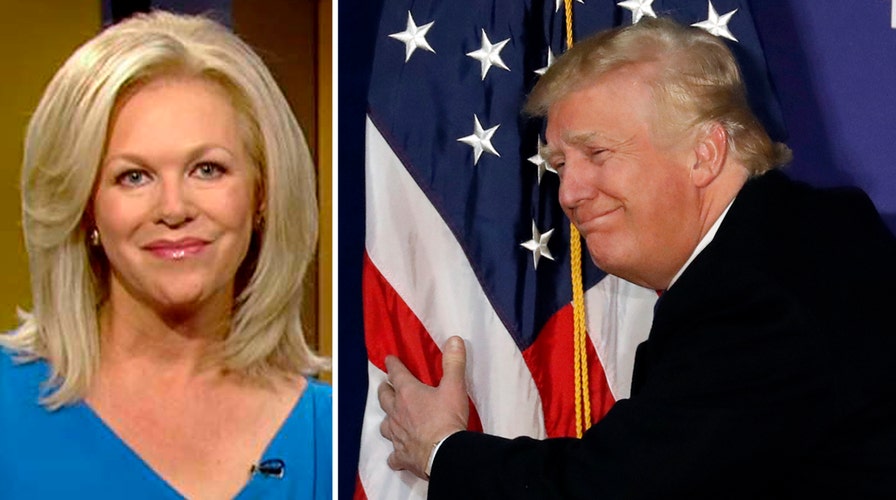President-elect Trump calls for flag burning to be outlawed
Reaction from Lis Wiehl, Fox News legal analyst, and criminal defense attorney Bob Bianchi
Donald Trump came under heavy criticism Tuesday after calling for the criminalization of burning the American flag, with critics gasping that the president-elect’s words represent a threat to the First Amendment. However, Trump’s suggestions are similar to a bill pushed in the Senate in 2005 that would criminalize flag burning – a bill that was co-sponsored by then-Sen. Hillary Clinton.
Trump tweeted that there should be “consequences” for the burning of the flag -- including a year in jail or a loss of citizenship -- which is seen by many as an act of desecration.
The president-elect came under immediate fire for his comments. Mother Jones called it “a terrifying sign of how he may crack down on dissent during his administration, even if it means trampling the Constitution in the process."
CNN’s Chris Cuomo lectured Trump transition communications director Jason Miller Tuesday morning, citing Supreme Court cases that ruled flag burning to be protected under the Constitution.
"These things matter Jason, they just do. When things are vetted by the Supreme Court and it's seen as constitutional, you gotta respect that. You just have to respect that,” he said.
House Majority Leader Kevin McCarthy said there were no plans for Congress to take action against flag burning, telling reporters Tuesday that he does not "support or believe in the idea of people burning the American flag. I support the First Amendment."
Multiple Supreme Court decisions have found flag burning to be protected under the First Amendment. In 1989 the court struck down a Texas law criminalizing flag burning in a 5-to-4 decision, with even conservative Justice Antonin Scalia arguing the practice was protected under the First Amendment.
However, despite the Supreme Court’s pronouncements on the issue, seeking to criminalize flag burning has been a regular occurance in American politics, and was pushed in 2005 by then-Sen. Clinton.
In 2005, Clinton co-sponsored the Flag Protection Act which, while it did not call for the stripping of citizenship, made flag burning with the intent to incite violence or disturb the peace punishable by a year in jail and a $100,000 fine.
The bipartisan bill, introduced by Clinton and then-Sen. Bob Bennett, R-Utah, never made it out of the Judiciary Committee, but was floated as a compromise to a proposed constitutional amendment that would ban flag burning.
Clinton was criticized for her stance then, although the criticisms leveled at her targeted Clinton's perceived political slipperiness, rather than her representing a threat to constitutional liberty. A New York Times piece accused the senator of being “in pander mode.”
“It's hard to see this as anything but pandering -- there certainly isn't any urgent need to resolve the issue. Flag-burning hasn't been in fashion since college students used slide rules in math class and went to pay phones at the student union to call their friends,” the paper claimed.
The Tampa Bay Times, meanwhile, called Clinton's move a “pathetic ploy” and “political pandering of the worst kind.”





